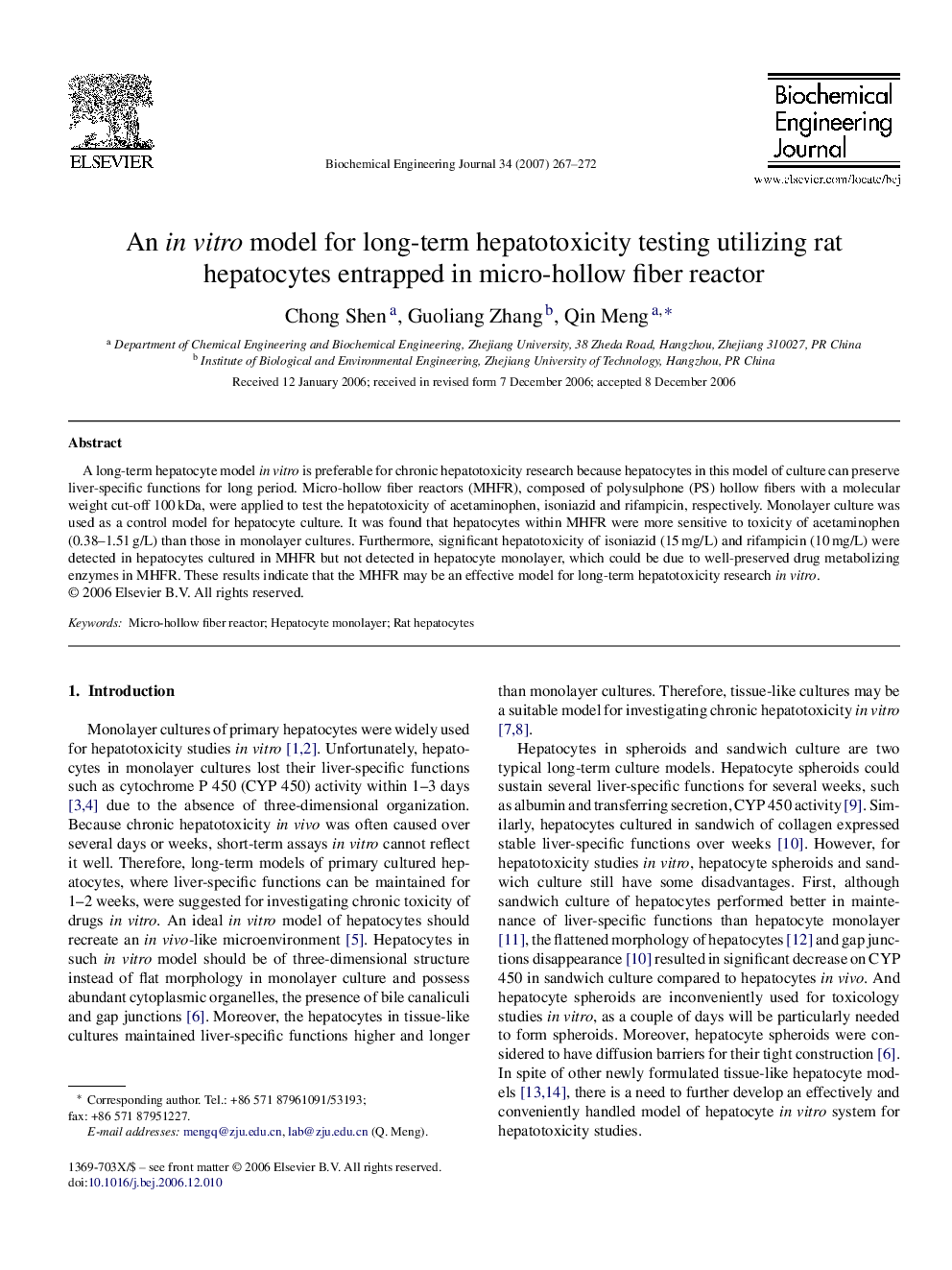| Article ID | Journal | Published Year | Pages | File Type |
|---|---|---|---|---|
| 4693 | Biochemical Engineering Journal | 2007 | 6 Pages |
A long-term hepatocyte model in vitro is preferable for chronic hepatotoxicity research because hepatocytes in this model of culture can preserve liver-specific functions for long period. Micro-hollow fiber reactors (MHFR), composed of polysulphone (PS) hollow fibers with a molecular weight cut-off 100 kDa, were applied to test the hepatotoxicity of acetaminophen, isoniazid and rifampicin, respectively. Monolayer culture was used as a control model for hepatocyte culture. It was found that hepatocytes within MHFR were more sensitive to toxicity of acetaminophen (0.38–1.51 g/L) than those in monolayer cultures. Furthermore, significant hepatotoxicity of isoniazid (15 mg/L) and rifampicin (10 mg/L) were detected in hepatocytes cultured in MHFR but not detected in hepatocyte monolayer, which could be due to well-preserved drug metabolizing enzymes in MHFR. These results indicate that the MHFR may be an effective model for long-term hepatotoxicity research in vitro.
